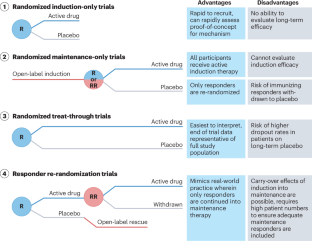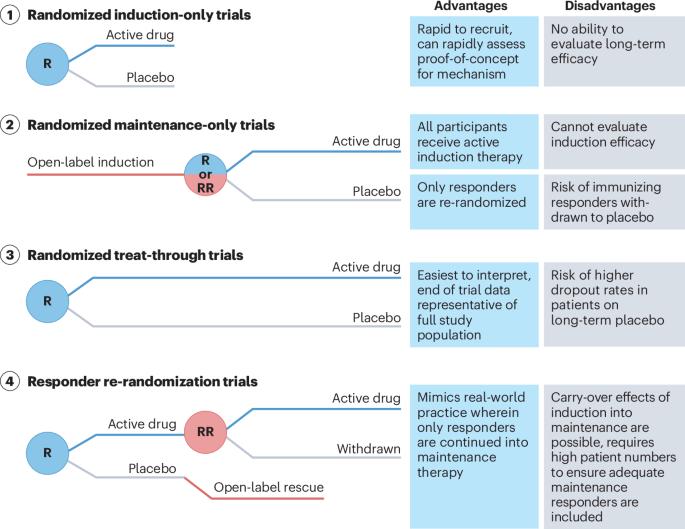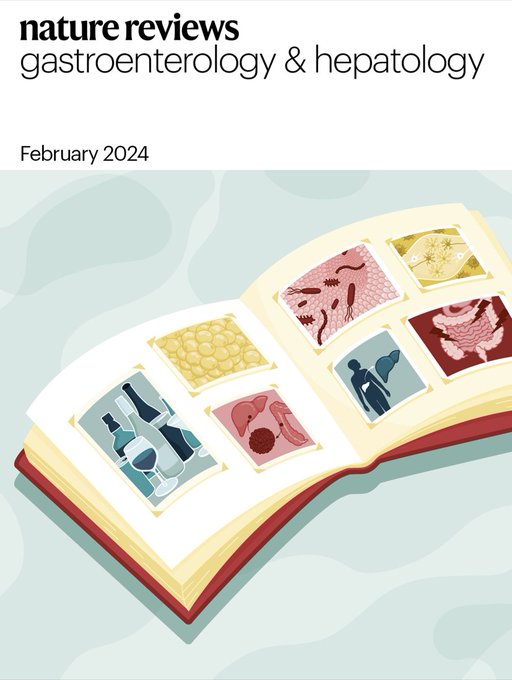解读炎症性肠病医学疗法的现代随机对照试验
IF 45.9
1区 医学
Q1 GASTROENTEROLOGY & HEPATOLOGY
引用次数: 0
摘要
在过去的十年中,炎症性肠病(IBD)的治疗方案大幅增加。目前,包括单克隆抗体和新型口服小分子药物在内的多类先进疗法已可用于治疗中度至重度活动性克罗恩病和溃疡性结肠炎,首批 IL23p19 拮抗剂、选择性 Janus 激酶抑制剂和鞘氨醇-1-磷酸受体调节剂的获批更是其中的亮点。在取得这些进展的同时,我们还发现了新的靶点,IBD 临床试验的数量和规模也在迅速增长。过去 5 年中完成了十多项具有里程碑意义的随机对照试验 (RCT),其中包括首例头对头生物制剂试验、首例联合生物制剂研究以及多项新型化合物 III 期注册试验,这些试验采用了新的共同主要终点和复合终点,将在未来数年内改变治疗格局。重要的是,IBD 的 RCT 方法已经发生了重大变化,新的试验设计、对独特患者群体的评估以及不同类型的疗效和安全性终点都是重要的创新。在本综述中,我们将全面评估 IBD 医学疗法的现代 RCT 如何演变以及对其评估的影响,这将有助于指导临床实践中对这些数据的应用。本文章由计算机程序翻译,如有差异,请以英文原文为准。


Interpreting modern randomized controlled trials of medical therapy in inflammatory bowel disease
Treatment options for the medical management of inflammatory bowel disease (IBD) have expanded substantially over the past decade. Multiple classes of advanced therapies, including both monoclonal antibodies and novel oral small molecules, are now available for the treatment of moderately-to-severely active Crohn’s disease and ulcerative colitis, highlighted by the approvals of the first IL23p19 antagonists, selective Janus kinase inhibitors and sphingosine-1-phosphate receptor modulators. These advances have been accompanied by the identification of novel targets and the rapid growth in both the number and size of IBD clinical trials. Over a dozen landmark randomized controlled trials (RCTs) have been completed in the past 5 years, including the first head-to-head biologic trials, the first combination biologic studies, and multiple phase III registrational trials of novel compounds with new co-primary and composite end points that will change the treatment landscape for years to come. Importantly, the methodology of RCTs in IBD has evolved substantially, with new trial designs, evaluation of unique patient populations, and different types of efficacy and safety end points being key innovations. In this Review, we provide a comprehensive evaluation of how modern RCTs of IBD medical therapies have evolved and the implications for their appraisal that will help guide the application of these data to clinical practice. In this Review, Ma and colleagues discuss the evolution in clinical trial designs for inflammatory bowel disease (IBD), their implications for clinical care, and identify future directions for the next generation of IBD studies.
求助全文
通过发布文献求助,成功后即可免费获取论文全文。
去求助
来源期刊
CiteScore
52.30
自引率
0.60%
发文量
147
审稿时长
6-12 weeks
期刊介绍:
Nature Reviews Gastroenterology & Hepatology aims to serve as the leading resource for Reviews and commentaries within the scientific and medical communities it caters to. The journal strives to maintain authority, accessibility, and clarity in its published articles, which are complemented by easily understandable figures, tables, and other display items. Dedicated to providing exceptional service to authors, referees, and readers, the editorial team works diligently to maximize the usefulness and impact of each publication.
The journal encompasses a wide range of content types, including Research Highlights, News & Views, Comments, Reviews, Perspectives, and Consensus Statements, all pertinent to gastroenterologists and hepatologists. With its broad scope, Nature Reviews Gastroenterology & Hepatology ensures that its articles reach a diverse audience, aiming for the widest possible dissemination of valuable information.
Nature Reviews Gastroenterology & Hepatology is part of the Nature Reviews portfolio of journals.

 求助内容:
求助内容: 应助结果提醒方式:
应助结果提醒方式:


